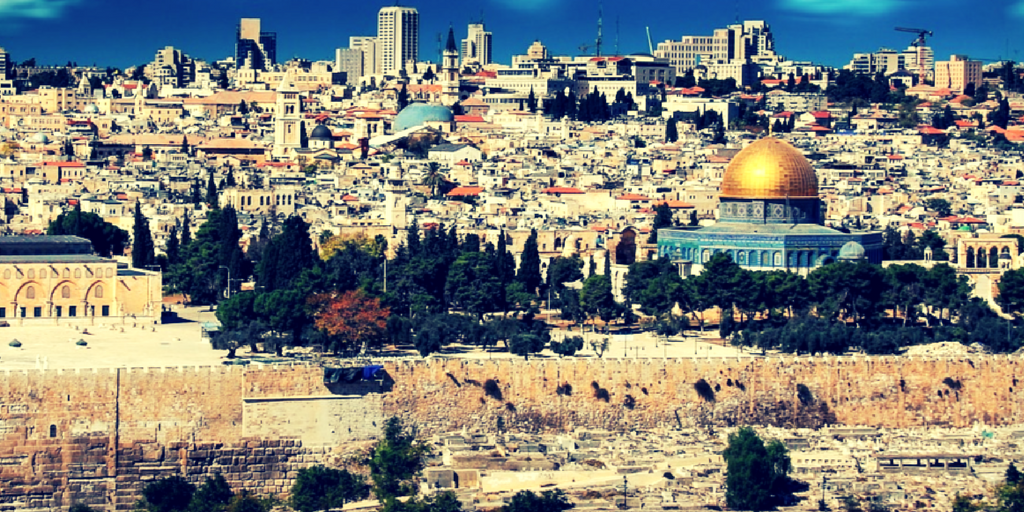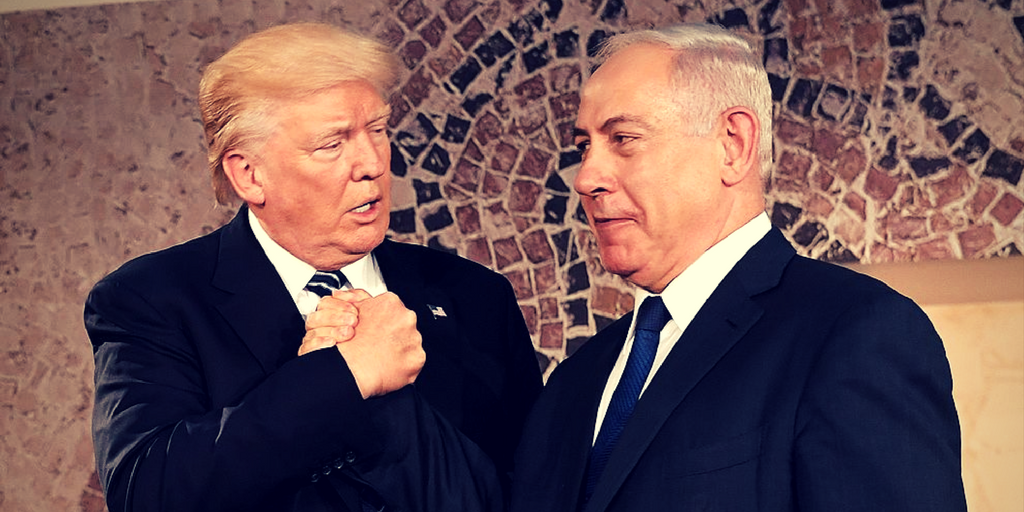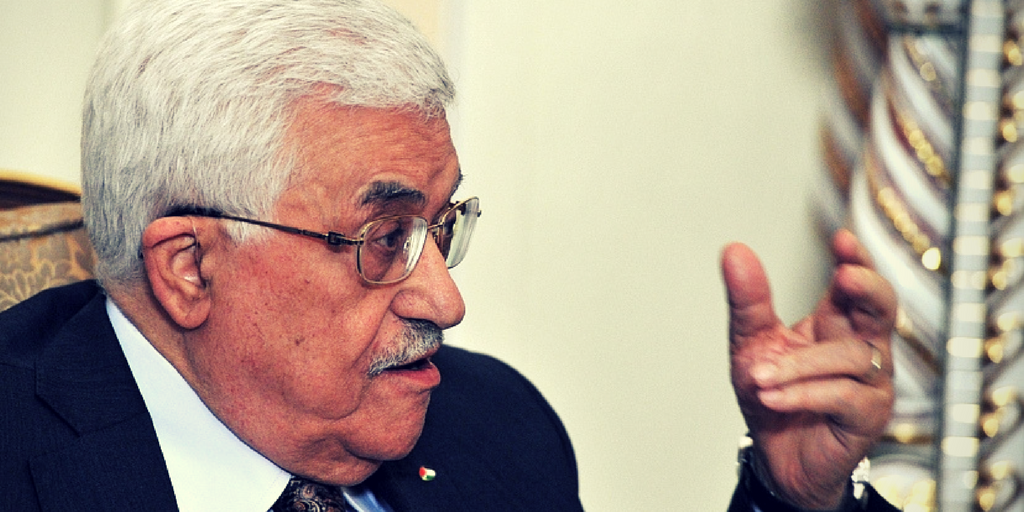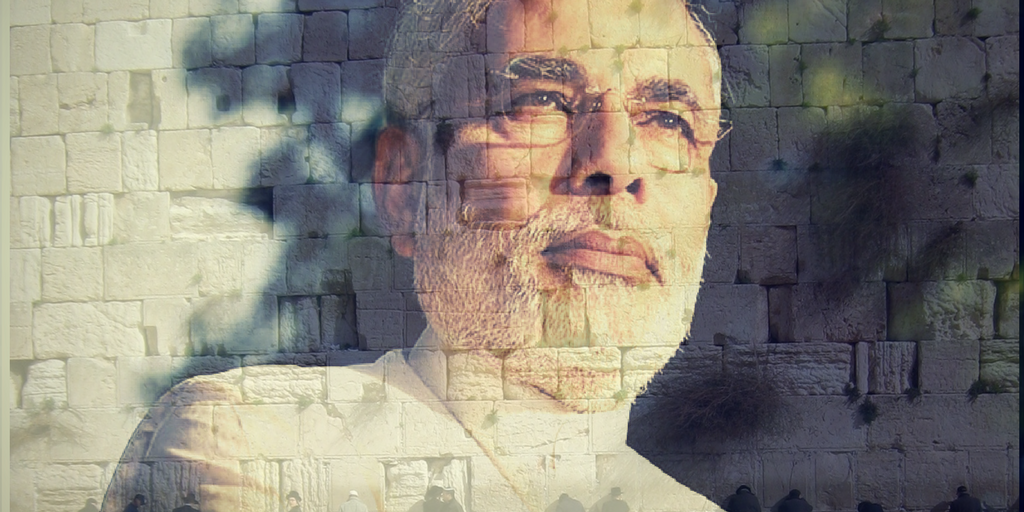Prime Minister Benjamin Netanyahu was attacked by the media for not jumping on the bandwagon and condemning US President Donald Trump for his response to the far-right and far-left rioters in Charlottesville earlier this month. It may be that he held his tongue because he saw nothing to gain from attacking a friendly president. But it is also reasonable to assume that Netanyahu held his tongue because he empathizes with Trump. More than any leader in the world, Netanyahu understands what Trump is going through. He’s been there himself – and in many ways, is still there. Netanyahu has never enjoyed a day in office when Israel’s unelected elites weren’t at war with him.
From a comparative perspective, Netanyahu’s experiences in his first term in office, from 1996 until 1999, are most similar to Trump’s current position. His 1996 victory over incumbent prime minister Shimon Peres shocked the political class no less than the American political class was stunned by Trump’s victory. And this makes sense. The historical context of Israel’s 1996 election and the US elections last year were strikingly similar.
In 1992, Israel’s elites, the doves who controlled all aspects of the governing apparatuses, including the security services, universities, government bureaucracies, state prosecution, Supreme Court, media and entertainment industry, were seized with collective euphoria when the Labor Party under the leadership of Yitzhak Rabin and Shimon Peres won Israel’s Left its first clear-cut political victory since 1974. Rabin and Peres proceeded to form the most dovish governing coalition in Israel’s history.
Then in 1993, after secret negotiations in Oslo, they shocked the public with the announcement that they had decided to cut a deal with Israel’s arch enemy, the PLO, a terrorist organization pledged to Israel’s destruction.
The elites, who fancied themselves the guardians of Israel’s democracy, had no problem with the fact that the most radical policy ever adopted by any government, one fraught with dangers for the nation and the state, was embarked upon with no public debate or deliberation.
To the contrary, they spent the next three years dancing around their campfire celebrating the imminent realization of their greatest dream. Israel would no longer live by its sword. It would be able to join a new, post-national world. In exchange for Jerusalem and a few other things that no one cared about, other than some fanatical religious people, Israel could join the Arab League or the European Union or both.
From 1993 through 1996, and particularly in the aftermath of Rabin’s assassination in November 1995, the media, the courts and every other aspect of Israel’s elite treated the fellow Israelis who reject- ed their positions as the moral and qualitative equivalent of terrorists. Like the murderers of innocents, these law-abiding Israelis were “enemies of peace.”
As for terrorism, the Oslo process ushered in not an era of peace, but an era of unprecedented violence. The first time Israelis were beset by suicide bombers in their midst was in April 1994, when the euphoria over the coming peace was at its height.
The 1996 election was the first opportunity the public had to vote on the Oslo process. Then, in spite of Rabin’s assassination and the beautiful ceremonies on the White House lawns with balloons and children holding flowers, the people of Israel said no thank you. We are Zionists, not post-Zionists. We don’t like to get blown to smithereens on buses, and we don’t appreciate being told that victims of terrorism are victims of peace.
Trump likewise replaced the most radical president the US has ever known. Throughout Barack Obama’s eight years in office, despite his failure to restore America’s economic prosperity or secure its interests abroad, Obama enjoyed the sycophantic support of the media, whose leading lights worshiped him and made no bones about it.
In one memorable exchange after Obama’s June 2009 speech in Cairo, where he presented the US as the moral equivalent of its enemies, Newsweek editor Evan Thomas told MSNBC host Chris Mitchell that Obama was “kind of God.”
Obama’s job, Thomas explained, was not merely to lead the US as his predecessor Ronald Reagan had done. Obama was above “provincial nationalism.” His job was to teach morality to humanity.
In Thomas’s words, “He’s going to bring all different sides together… He’s all about ‘let us reason together’… He’s the teacher. He is going to say, ‘Now, children, stop fighting and quarreling with each other.’ And he has a kind of a moral authority that he – he can – he can do that.”
The American Left’s adoration of Obama was so all-encompassing, and its control of the mainstream US media so extensive, that it never occurred to its members that the public disagreed with them. They were certain that Hillary Clinton, Obama’s chosen successor, would win.
In 1996, the Israeli elite greeted Netanyahu’s victory with shock and grief. The “good, enlightened” Israel they thought would rule forever had just been defeated by the unwashed mob. Peres summed up the results by telling reporters that “the Israelis” voted for him. And “the Jews” voted for Netanyahu. His followers shook their heads in mildly antisemitic disgust.
Their mourning quickly was replaced by a spasm of hatred for Netanyahu and his supporters that hasn’t disappeared even now, 21 years later.
The media’s war against Netanyahu began immediately. It was unrelenting and more often than not unhinged. So it was that two weeks after his victory, Jerusalem’s Kol Ha’ir weekly published a cover story titled, “Who are you, John Jay Sullivan?” The report alleged that Netanyahu was a CIA spy who went by the alias “John Jay Sullivan.” It took all of five minutes to take the air out of that preposterous balloon, but the media didn’t care – and it was all downhill from there.
Netanyahu, the media insisted, was a crook. He incited Yitzhak Rabin’s assassination. He may even have been the assassin. His wife, Sara, was mean to nannies. She was a bad mother. She was ill-mannered in general and probably crazy.
Any prominent politician or luminary who entered Netanyahu’s orbit was demonized and libeled. Authors who dared to have dinner with him, journalists who dared to write anything half- way supportive of him, were effectively excommunicated from their professional cliques.
His advisers and cabinet ministers found them- selves under criminal investigation over nothing, and so did Netanyahu and his wife.
Every action his government took that could in any way be interpreted as a step toward weakening the elite’s control of the country brought bombastic headlines day after day, accusing Netanyahu of seeking to undermine the rule of law.
Every disgruntled cabinet minister, every slight- ed aide who publicly criticized Netanyahu, was given instant celebrity and star-for-a-news-cycle status.
The dovish commanders of the IDF and the Shin Bet were openly disloyal to Netanyahu in every – thing relating to the peace process with the PLO. Every attempt Netanyahu made to abandon his predecessors’ blind and misplaced faith in PLO chief Yasser Arafat was immediately leaked to the media. “Security sources” blamed Netanyahu for terrorist attacks.
When the Mossad bungled the assassination of Hamas chief Khaled Mashaal in Amman, it was Netanyahu’s fault. When Arafat used Netanyahu’s authorization of the opening of a new entrance to the Western Wall tunnels to unleash a terrorist offensive against Israel that left 15 Israelis dead in a week, then-Shin Bet director Ami Ayalon blamed Netanyahu at a live press conference.
The purpose of the leaks and the misdirection was to box Netanyahu in with no option other than to continue his predecessors’ failed policy of appeasing and empowering Palestinian terrorists.
Just as the notion that Netanyahu – the man who rejected their post-Zionist euphoria and insisted that there would be no new Middle East – had beat- en their savior Peres blew the Israeli elites’ minds to bits, so the US elite has still refused to come to terms with the fact that Donald Trump, the man they view as nothing more than a nouveau riche vulgarian, beat the anointed successor of their idol Obama.
So they hate him and cannot stop demonizing him. Whether it’s Obama’s director of national intelligence James Clapper, who insisted that the Muslim Brotherhood is a “largely secular organization,” saying that Trump is insane, or Bob Costa from CNN calling him a white supremacist and antisemite, there is no lunatic depth the American Left will not plumb to attack, demonize and dehumanize Trump and his supporters.
So how is a leader to respond to this sort of onslaught? Netanyahu for his part gave up fighting at some point in his first term. Faced with the implacable animosity of an empowered elite that boxed him in at every turn, Netanyahu decided to try to give them what they wanted in the hope of surviving in office.
He made a deal with Arafat and Bill Clinton at Wye Plantation. He handed Hebron over to PLO control. He surrendered government control over selection of the attorney-general to a committee controlled by the elites and so sank Israeli democracy into the hole it is still in.
Since 1997, unelected lawyers unaccountable to elected officials have the power to dismantle democratically elected governments, essentially at will.
Netanyahu got nothing for his efforts. The media, prosecution, state bureaucracy and security services continued to wage political war against him until, with the help of the Clinton administration, they overthrew his government in 1999 and brought Ehud Barak to power. Barak presided over a government so radical that the Rabin-Peres government looked hawkish in comparison.
Before Israel could move past its elites, the fruits of their radical policies first had to be ingested. In the event, the fruits of those policies were 1,500 Israelis killed in the Palestinian terrorist war and the emergence of strategic threats and repeated wars from post-withdrawal Gaza and Lebanon.
Today it is clear that Trump is wrestling with how to proceed in governing, as the American elites openly seek his political and even personal destruction. One day he tacks to the establishment in the hopes of appeasing those who hate him, and the next day he embraces his supporters and repeats his campaign pledges to “drain the swamp.”
The lessons of Netanyahu’s first term – and to a degree, his subsequent terms in office as well – are clear enough and Trump would do well to apply them.
You cannot appease people who want to destroy you. And you cannot succeed by embracing the failed policies of your predecessors that you were elected to roll back. The elites who reject you will never embrace you. The only way to govern successfully when you are under relentless assault is to empower your supporters and keep faith with them.
Originally published in The Jerusalem Post.







